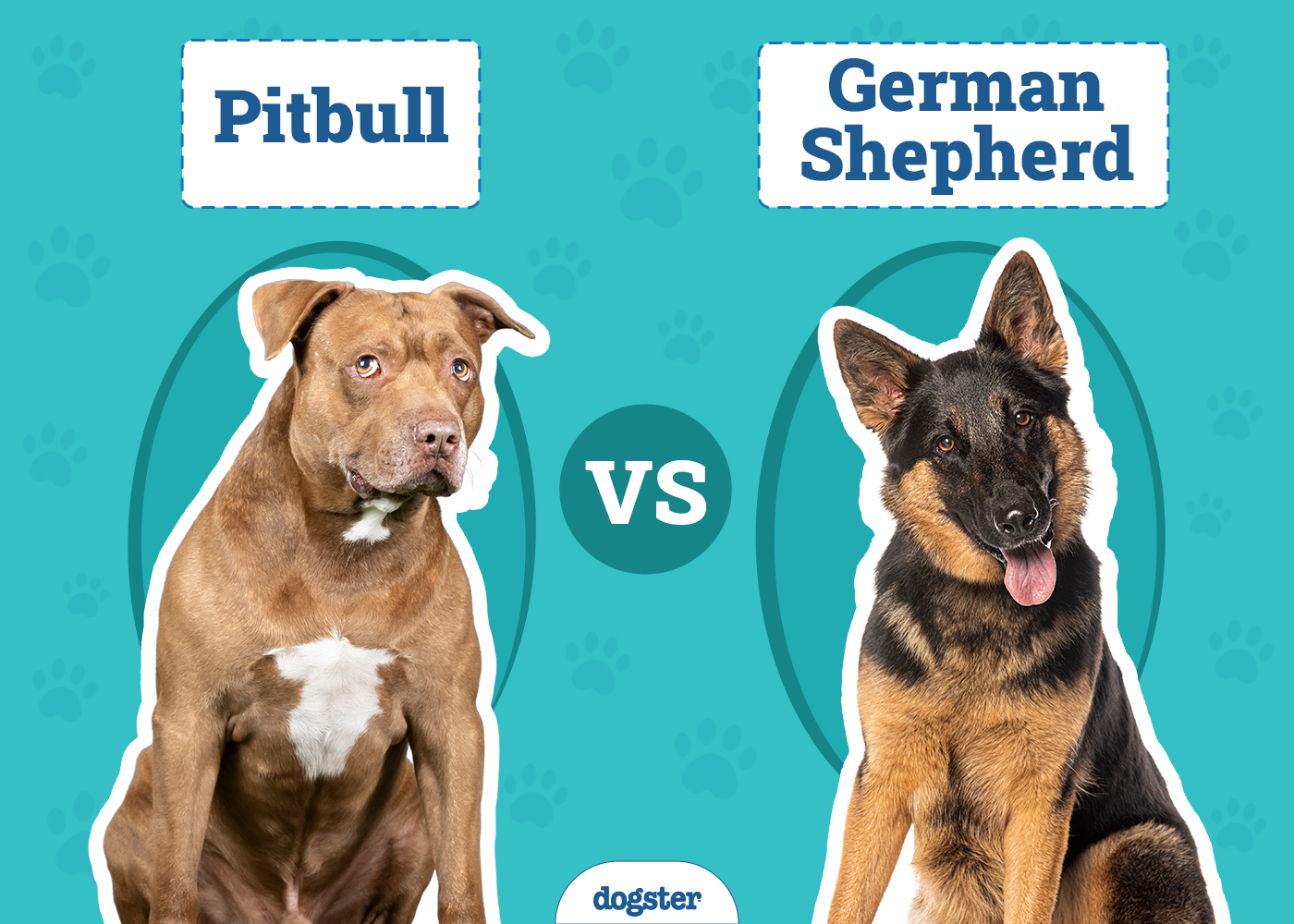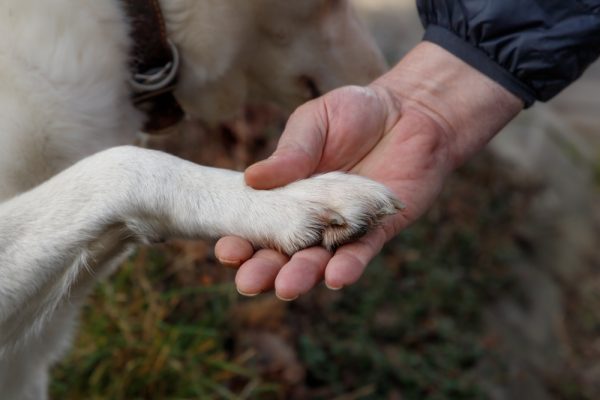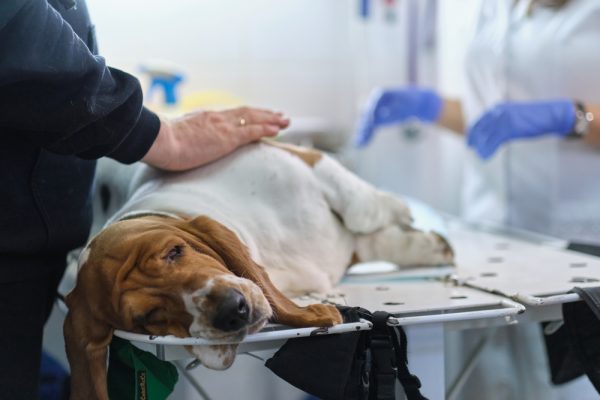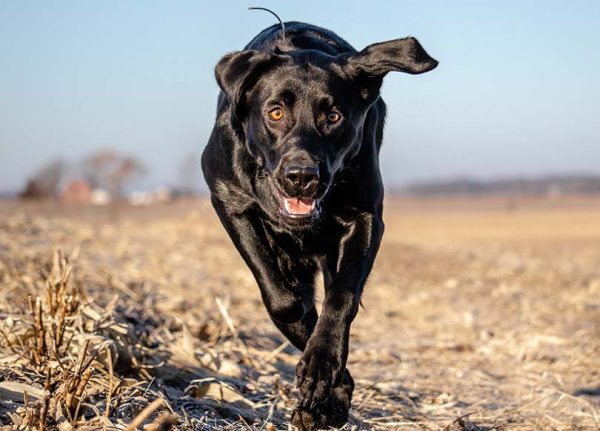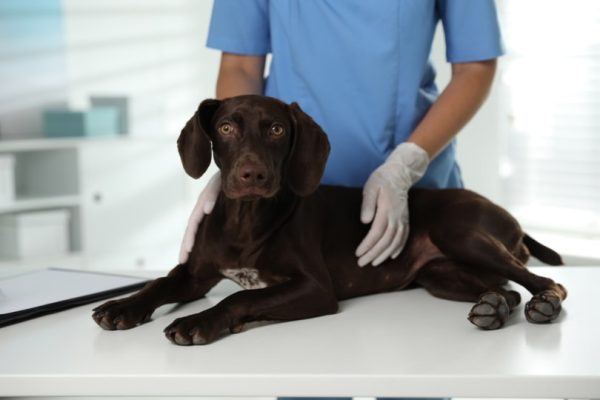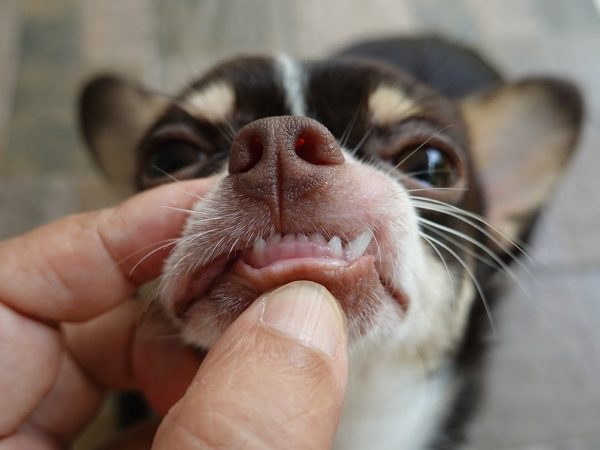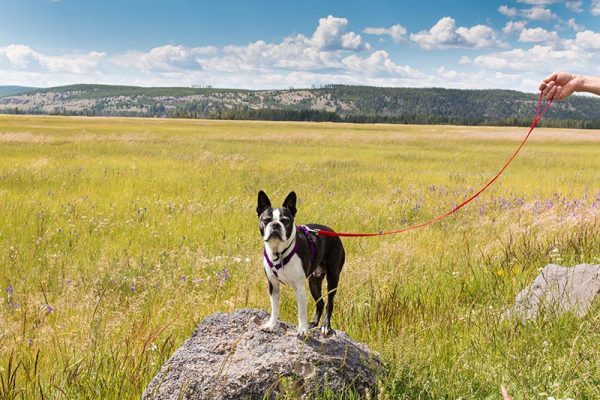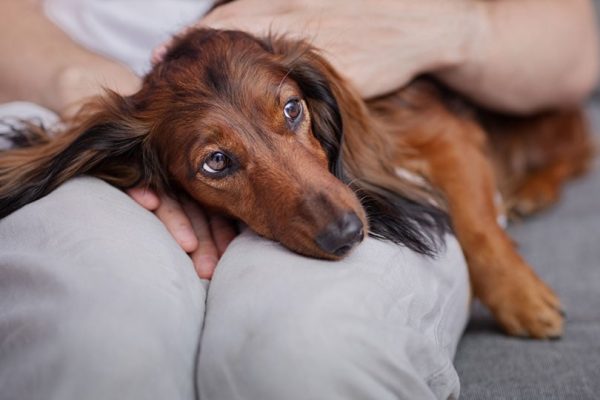In this article
View 3 More +American Pitbull Terriers and German Shepherds appear on the same side of the canine coin regarding their size, temperament, and fierce reputation. But there’s more than intimidation with these dogs; they’re also known to be affectionate and loyal to their owners.
When considering which of the two is right for you, a lot will hinge on your lifestyle and what you’re looking for in a dog. Differences in temperament and behavior are determined by training and any maltreatment the dog may have received in their lifetime in the case of adoptees.
Let’s examine the essential aspects of each dog so that you’ll be confident in bringing home the perfect pup for your household.

Visual Differences
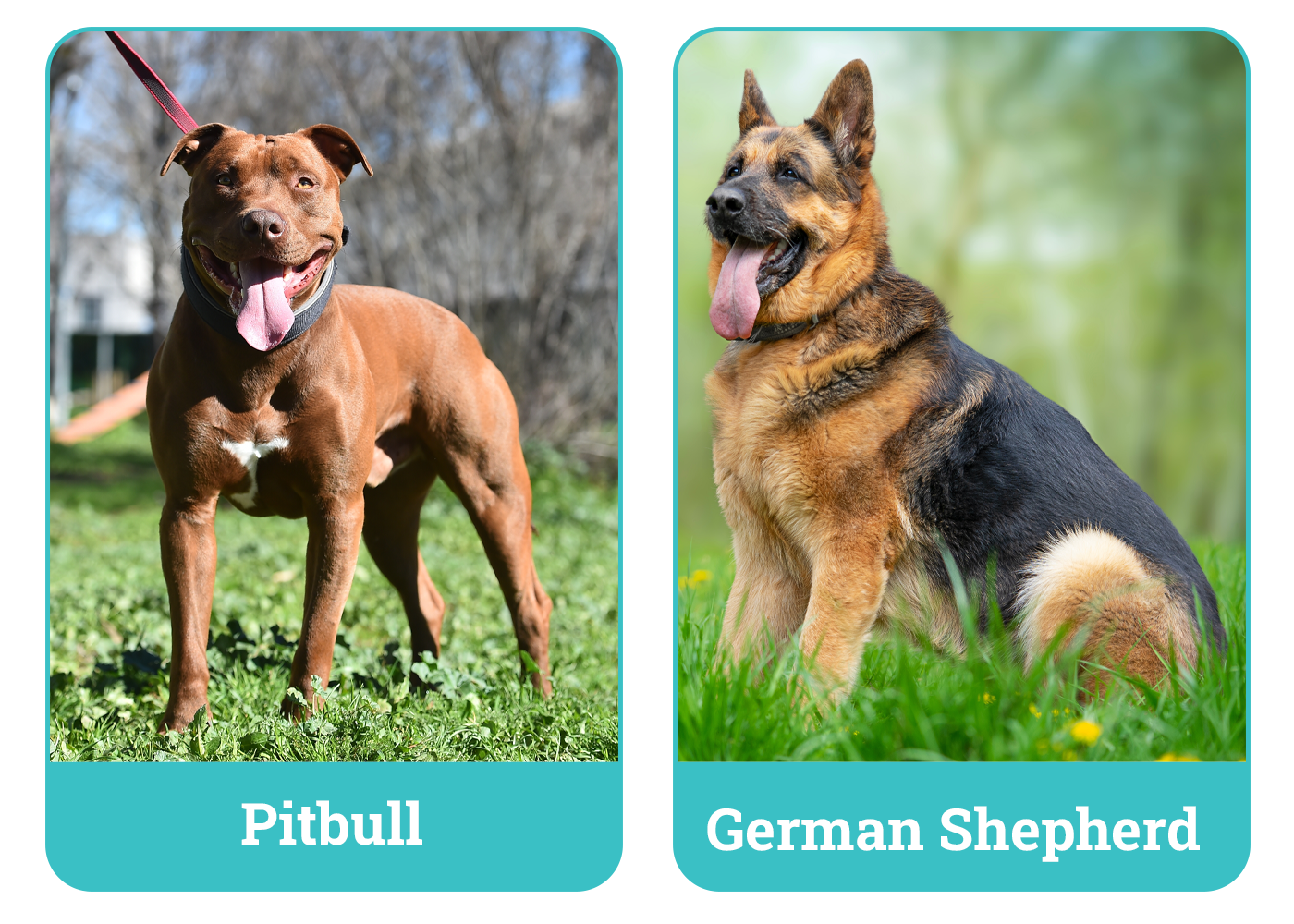
At a Glance
- Average height (adult): 19–22 inches
- Average weight (adult): 50–65 pounds
- Lifespan: 10–13 years
- Exercise: 2+ hours a day
- Grooming needs: Low to moderate
- Family-friendly: Yes
- Other pet-friendly: Prone to aggression
- Trainability: Intelligent but difficult and stubborn
- Average height (adult): 21–26 inches
- Average weight (adult): 75–95 pounds
- Lifespan: 10–14 years
- Exercise: 2+ hours a day
- Grooming needs: High
- Family-friendly: Yes
- Other pet-friendly: Often
- Trainability: Highly intelligent, loyal, eager to please

Pitbull Pet Overview
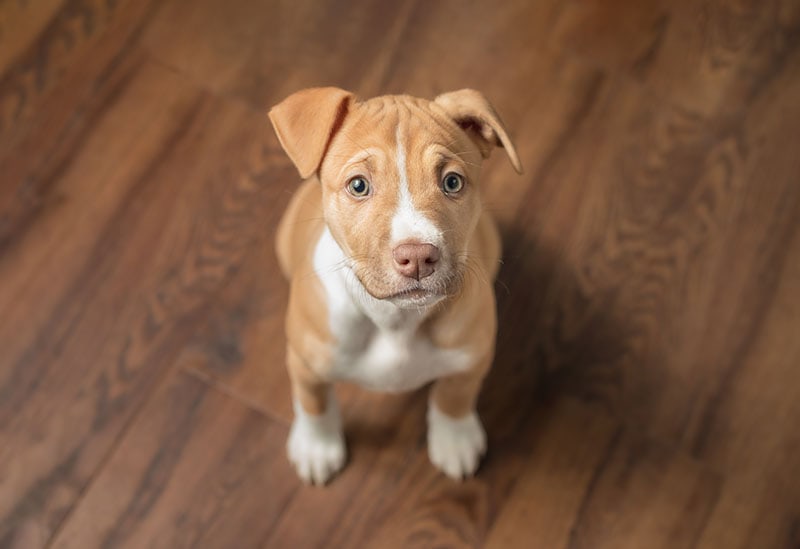
Pitbulls are descended from old English Terriers and Bulldogs, initially used for blood sports like bear and bull baiting. The sports were outlawed in England in the mid-18th century, but they were soon used in dog fighting, which is still an issue today. The Pitbull Terrier was also used as the US Army’s mascot during World War I because of their loyalty and determination.
Apart from being obedient and intelligent dogs, they are also known for their bravery and tenacity. If not properly trained and socialized, Pitbulls can display aggression and stubbornness. They’re excellent guard dogs, but without proper training, they aren’t suitable around strangers, small children, and other pets.
Personality / Character
When considering the perfect family companion, it’s essential to note that Pitbulls are eager to please, affectionate, and loyal. They are protective and can become anxious when confronted by strangers or if they perceive their owners are in danger.
However, the Pitbull is more sociable than the German Shepherd and loves to make new friends after being properly socialized, unlike the suspicion displayed by the latter. They have an extroverted personality that comes off as easygoing and pleasant among family members.
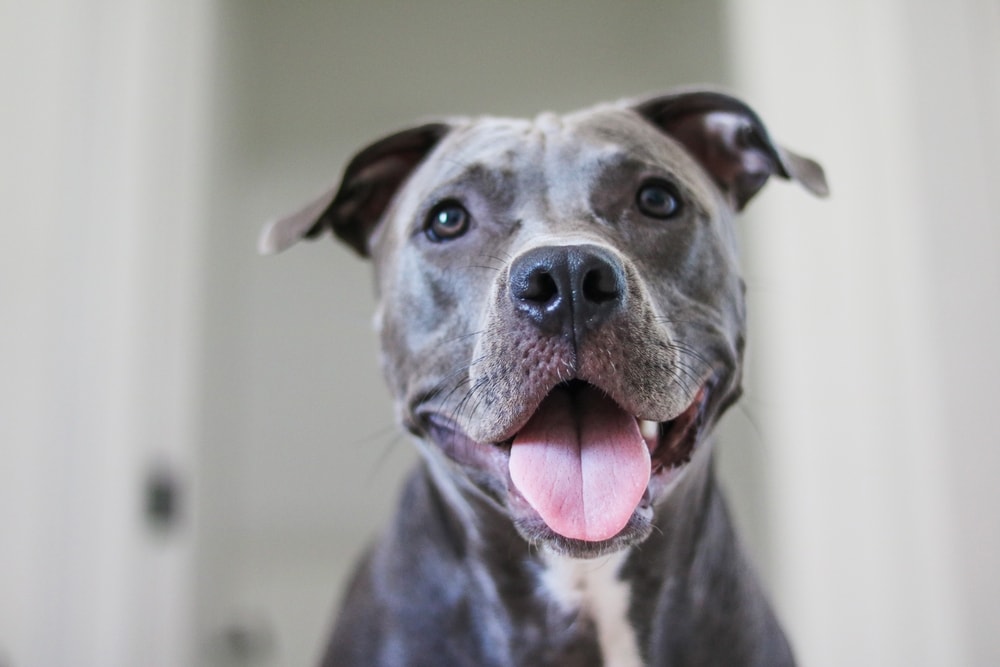
Training
As people pleasers, Pitbulls are easy to train since they’ll go to great lengths to make their owners happy. Training methods that utilize positive reinforcement and rewards work best for these dogs since they don’t react well to negative tactics like physical punishment or shock collars.
Pitbulls require significant mental stimulation during training, so you should include games, puzzles, and toys. Early socialization helps, especially with a Pitbull that exhibits fear and aggression when encountering other dogs.
Health & Care
On average, the Pitbull is a moderately long-living dog, and most live for between 12 and 16 years. However, healthcare significantly affects how long they dogs live, and they can suffer from several genetic dispositions like elbow and hip dysplasia. Skin allergies and cerebral abiotrophy are also concerns.
A high-quality diet, plenty of daily exercise, and regular veterinary appointments can reduce the chances of your dog experiencing health issues. Very active individuals need food high in proteins.
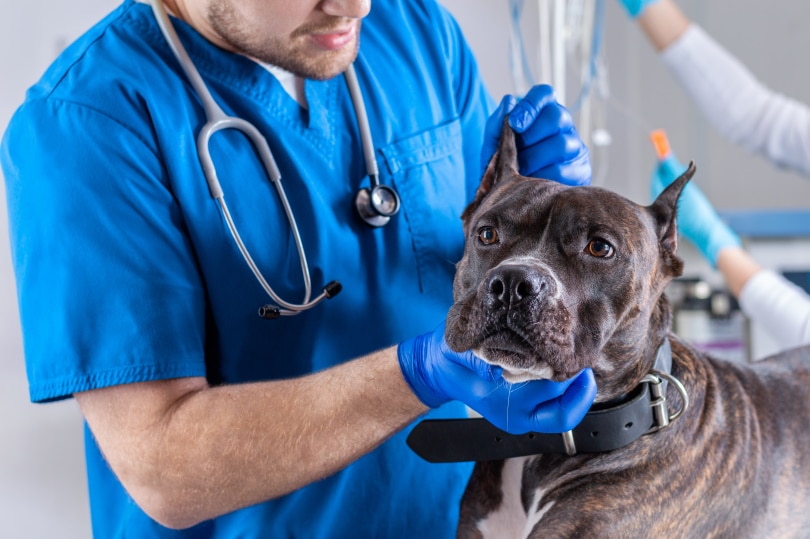
Suitable for:
Pitbulls make ideal pets for families without young children or other pets, especially dogs. However, they are generally friendly and will dote on family members, unlike German Shepherds, who are aloof and disinterested.
Generally, Pitbulls are laid back as comforting companions, and early socialization and training will improve their patience and responsiveness to commands. They are full of personality and will make perfect family pets.
- Very protective of their owners and family members
- Highly sociable and friendly
- Intelligent
- Require minimal grooming
- Banned in some states
- Not recognized by the AKC
- Aggressive and destructive if not properly trained
- Suffer from separation anxiety

German Shepherd Overview
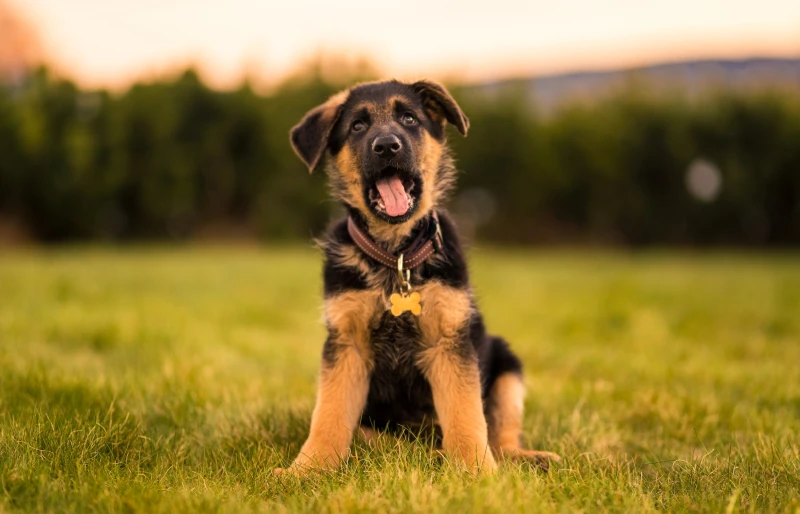
German Shepherds originated from dogs bred as sheepherders in the late 19th century. The German military also used them during the First and Second World Wars. The breed’s development is credited to German cavalry officer Captain Max von Stephanitz.
The dog’s reputation was muddled by their association with the Nazis but made a comeback in popularity when they were ranked by the AKC. The popularity of German Shepherds in America extends to the heart of culture, and the breed is the proud owner of two stars on the Hollywood Walk of Fame. They stand tall with a medium to long-length coat, depending on whether they have long or short hair.
Personality / Character
German Shepherds are an intelligent and loyal breed that is highly protective and obedient to their owners when adequately trained. They’re versatile pups that perform several tasks, such as search and rescue operations and guarding duties.
They’re also excellent therapy dogs and loyal pets. They mistrust strangers and take their guard role seriously, but they can harm children, pets, and visitors if not well-trained and socialized early.
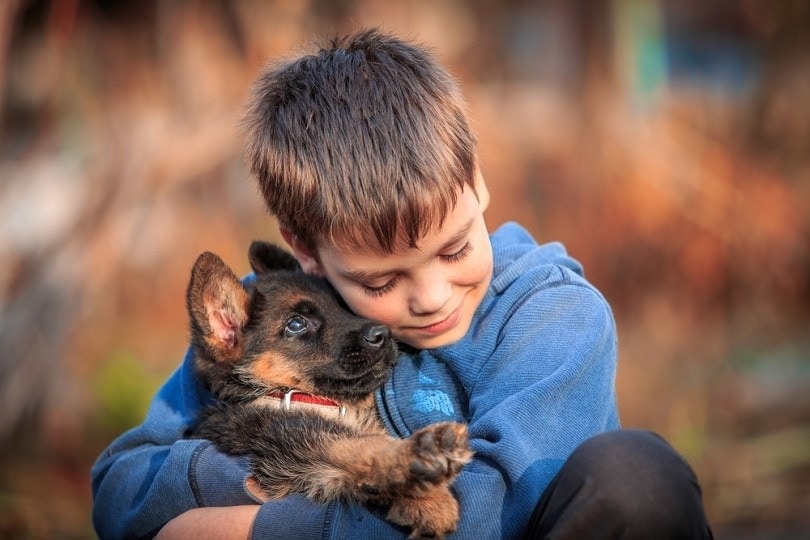
Training
Owing to their long history of working in military service, German Shepherds pick on new commands faster than Pitbulls. They prefer to spend more extended periods training due to an insatiable appetite for learning new things; they are more reward-driven than their counterparts.
Similarly, their high protectiveness means they’re bound to attack if they don’t see someone as part of their pack. But with a prey instinct that kicks in faster than most other canine breeds, they are easy to train for security and guard duties.
Health and Care
The German Shepherd is prone to sensitivity in the digestive system and requires a diet high in fiber. They’re also prone to elbow and hip dysplasia, eye ailments, and degenerative myelopathy that affects the spinal cord and hind legs.
Regular health checkups, exercise, and a high-quality diet are recommended to keep them healthy and prolong their lifespan. When they’re not working, the German Shepherd requires a lot of exercise. They should be walked at least twice daily and fed more according to size, age, and activity levels.
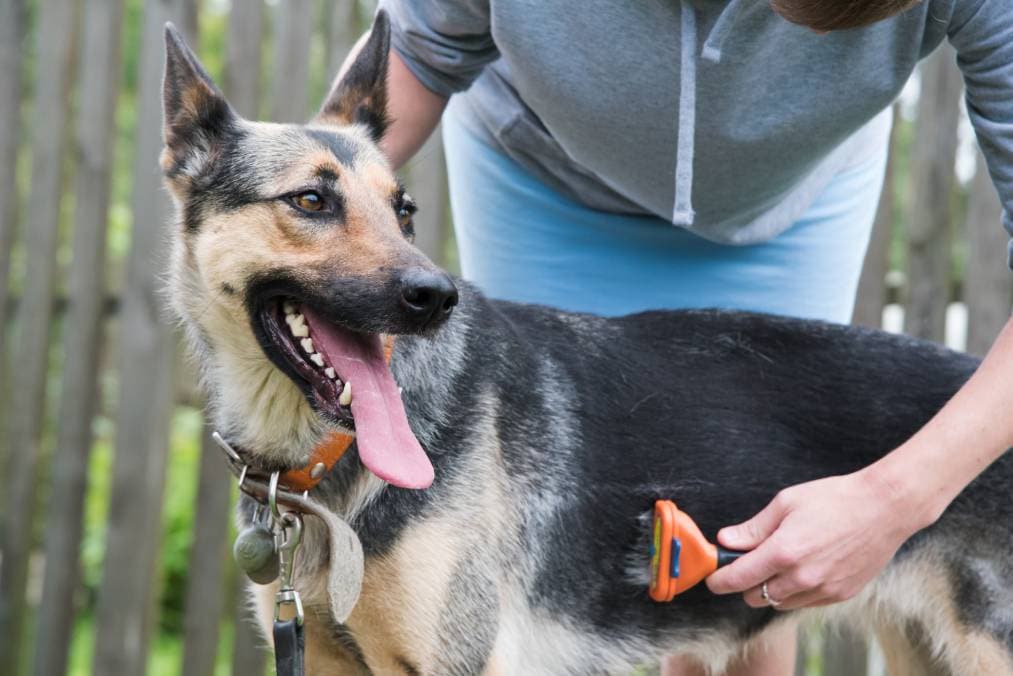
Suitable for:
Once well-trained and socialized, the German Shepherd becomes exceptionally comfortable around children and other pets. They make excellent watchdogs that will unnerve any intruder or unexpected stranger.
German Shepherds require an active household since their exercise requirements are higher than those of Pitbulls. They need mental and physical stimulation, which, coupled with their grooming needs, health requirements, and other factors, require more of your time and money.
- Easy to train and control
- Obedient, loyal, and eager to please
- Great guard and service dogs
- Highly adaptable
- High-energy and active dogs
- Expensive to buy and maintain
- Don’t fare well in multi-pet homes
- Heavy shedders and require regular grooming

Differences/Similarities of Pitbulls and German Shepherds
Pitbulls and German Shepherds are known as friendly and polite dogs. However, they can exhibit destructive behaviors if bored or suffering separation anxiety. They can also be aloof with children or strangers; thus, careful socialization and training are necessary.
Young Pitbulls and German Shepherds are incredibly exuberant, requiring constant mental and physical stimulation. The Pitbull is considered more independent-minded and needs a knowledgeable owner to control them.
On the other hand, German Shepherds are noticeably less dangerous and easier to control, as evidenced by legislation that affects Pitbulls in the US. But that doesn’t mean that Pitbulls are a lost cause, as accounts of human attacks are disproportionate and haven’t accounted for mixed breeds.
When they are trained for nefarious activities or when they’ve been abused or mistreated, they can become highly aggressive. Generally, both dogs are known for being loyal and sweet, especially when socialized properly.
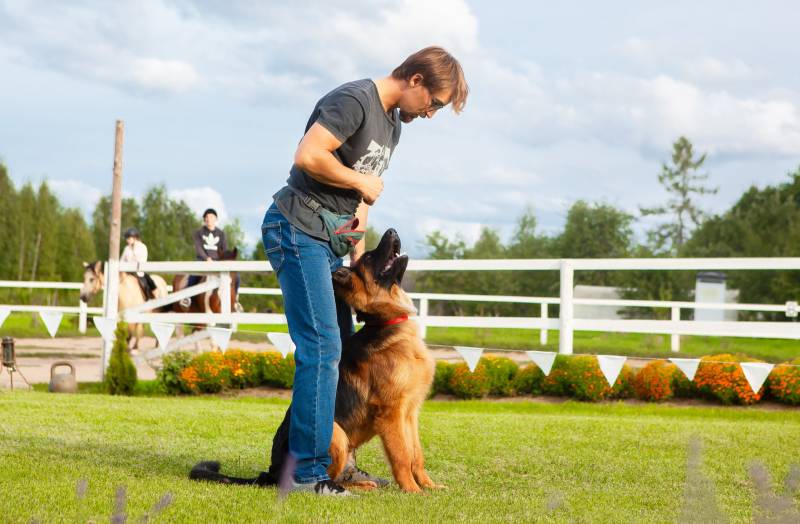

Which Breed Is Right for You?
Pitbulls and German Shepherds are reliable, versatile, and muscular. If you are searching for a sizable working dog with excellent guarding skills, the German Shepherd fits the bill, while the Pitbull is more easygoing and relaxed.
Pitbulls and German Shepherds are brilliant and easy to train and socialize, but the German Shepherd is more popular, attracting owners and institutions requiring security. However, choosing between the two breeds depends on personal preference and lifestyle.
In terms of expenses, a German Shepherd puppy costs approximately $400 more than a Pitbull, and you also have to consider their higher grooming needs, diet, and exercise requirements. Both breeds are energetic and powerful and are more suitable for experienced dog owners.
See Also:
- Belgian Tervuren vs Malinois: Differences Explained (With Pictures)
- Jack Russell Terrier German Shepherd Mix: Pictures, Care Guide, Temperament & Traits
Featured Image Credit: Dogster/Shutterstock
